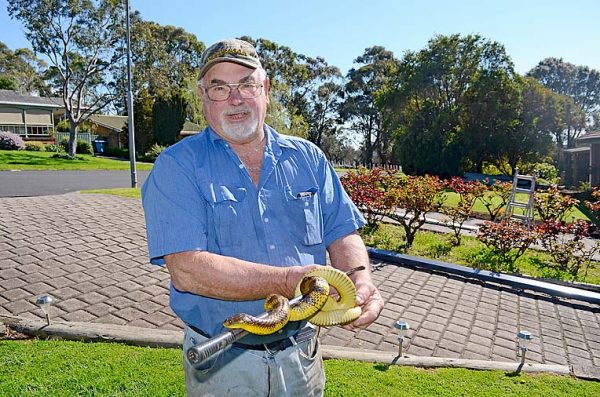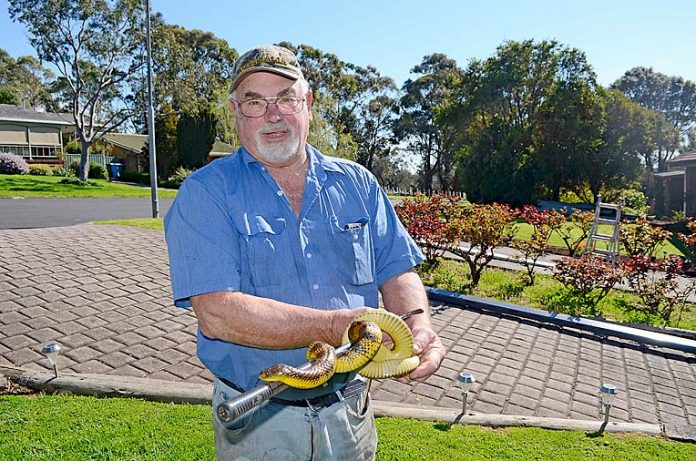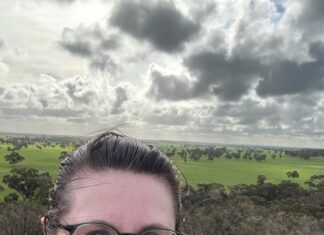
SPRING has sprung and snakes have become active in the South East, leading to renewed calls for people to remain vigilant as the weather heats up.
As tourists plan their summer holidays to the region and locals prepare to enjoy the sunshine, the slithering creatures are already on the move.
On Monday, local resident Liam Cottell spotted a lowland copperhead snake in the Valley Lake precinct on the Blue Gum Trail.
“My wife was walking ahead of me and I shouted out to her ‘keep going, quick’ as she was standing a few feet away from a snake,” Mr Cottell said.
“She screamed and ran all the way to the car.”
Carrying his camera and a long lens, Mr Cottell slowly walked past the snake before taking a few photographs.
“I stood a few metres back and took some photographs of it, noticing that it looked like a young copperhead,” he said.
“It was calm and only sunning itself – something to be left alone.”
While the photographs of the snake caused a stir on social media, local snake catcher David Miles said with the weather warming up, it was to be expected.
“Copperheads in particular will start to come out now because they can handle the cooler temperature better than some of the other snakes,” Mr Miles said.
“My snakes have started to move and as soon as they start to move, I know they will be out and about in the wild.”
The common or eastern brown snake, the tiger snake and the lowlands copperhead are known as the most common venomous snakes in the Lower South East.
With 25 years of experience catching and handling snakes, Mr Miles said people must remain calm if they stumble across the venomous creatures.
“Most people that get bitten are trying to kill snakes and technically by law it is illegal to kill them because they are native animals,” he said.
“Snakes react to movement, they consider that a threat – they do not want to be near humans.
“Their last resort is to bite and their venom is not designed for humans, they do not want to waste it on us.”
Mr Miles said there were only around five or six reported snake bites in the South East each year.
In the unlikely event people are bitten by a venomous snake, he had some important tips.
“You should get a bandage on, remain calm, lay down and you should get medical attention to come to you,” he said.
“Do not drive, because one of the first things that goes is your vision, so it will be the car, truck or power pole that will kill you, not the snake.”
Department for Environment and Water animal welfare manager Dr Deb Kelly said the best way to keep snakes away from your property was to not give them a place to live.
“If you keep grass short, store items off the ground on racks, get rid of piles of rubbish and prunings and control rodents, snakes will be less likely to want to move in with you because you will deny them both shelter and food,” Dr Kelly said.
“Just because you have never seen a snake on your property does not mean they are not there, so you should always be careful about putting your hands or feet into spots you cannot see, like long grass or that pile of junk behind the shed.”








